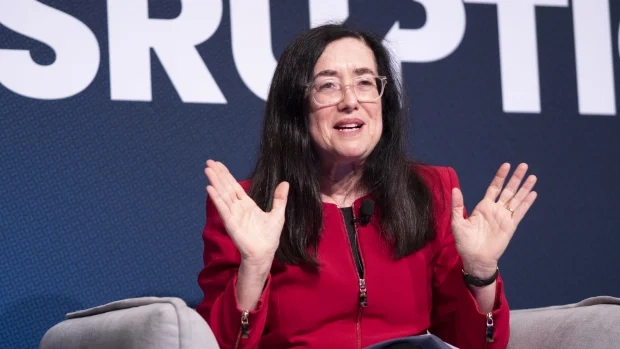ACCC Chairwoman Gina Cass-Gottlieb Sets $35 Million Stance as New Merger Regulations Approach

Planned changes to make Australia’s rules for buying and merging companies stricter mean that even deals worth $35 million will need approval from the competition watchdog.
Gina Cass-Gottlieb, the head of the Australian Competition and Consumer Commission, says this new starting point for checking deals is part of the biggest update to merger laws since the 1970s. This rule will be set after talking to businesses and could go up when the new laws start in 2026.
“The Treasury task force plans to start discussions on the thresholds soon,” she explained.
“Currently, they are considering several criteria for these thresholds. One is a financial measure: things like turnover, revenue, or the value of the transaction to determine its significance. They are also thinking about using market share as another possible trigger.”
Last week, Treasurer Jim Chalmers introduced reforms that would give the ACCC the power to scrutinize mergers that might hinder competition, while also speeding up the review process for those seen as promoting competition.
Transactions that exceed a financial or market share threshold, which has not yet been set, would have to be reported to the ACCC and receive approval before moving forward.
A public register of all mergers and acquisitions reported to the ACCC will be created and maintained, a step that the watchdog says will align Australia with other similar countries.
“Based on our extensive experience and reviewing cases where we identified issues over the years, we initially found that $35 million was typically the threshold for problematic mergers, although this has evolved over time,” Ms. Cass-Gottlieb explained.
The chair of the competition watchdog, who took over from Rod Simms in March 2022, emphasized the importance of not setting the threshold so high that it overlooks transactions that require additional examination.
“We aim to ensure the threshold is broad enough. The task force will encounter businesses that prefer a narrower scope. However, as demonstrated by the Government’s policy announcements so far, a balance will be struck,” she stated.
Gina Cass-Gottlieb added, “We believe it would be more prudent to initially set the threshold lower and possibly raise it later, rather than starting too high and missing significant transactions that then require lowering it.”
Some business organizations worry that the proposed reforms could create more bureaucratic hurdles or deter foreign investment in Australia, but Ms. Cass-Gottlieb argues that it’s incorrect to assume these changes would harm competitiveness.
She explained, “The vast majority of mergers, which are not likely to affect competition and actually encourage investment and innovation, will be processed swiftly.”
“I am confident that 80 to 90 percent of the mergers we review will be expedited in this manner, allowing us to concentrate our efforts and resources on those that could potentially restrict competition,” she added.
Her remarks coincide with senior executives from Coles and Woolworths facing tough questioning in a Senate inquiry about supermarket prices during a cost of living crisis. This situation has raised significant concerns about whether these two companies are operating as a duopoly.
Gina Cass-Gottlieb noted that it was “difficult” to determine whether the supermarket consolidations that occurred in the late 1980s and 1990s would have taken place if she had been in charge at the time.
“What I am sure of is that we would have had a better capability to scrutinize each transaction,” she stated.
“We would have had better oversight. Looking ahead, the reforms will prove to be very beneficial,” she further said.

Similar Posts
Is RCN Webmail the Ultimate Solution for Your Email Needs, or is it Another Option?
How Does the MIT Livable Wage Calculator Impact Financial Planning?
Unbiased Review of Blooket as a Game-based Educational Platform